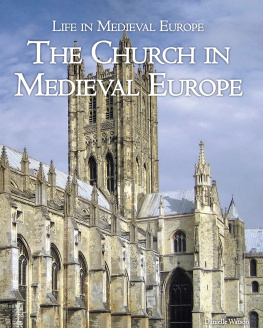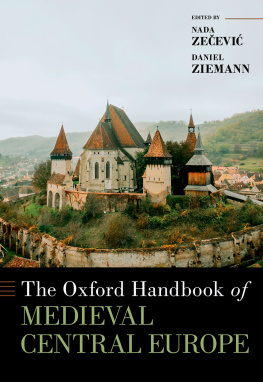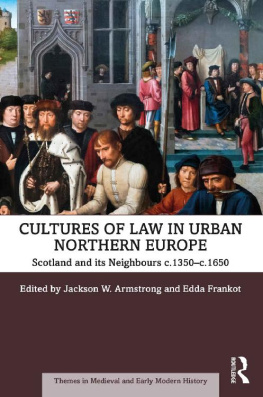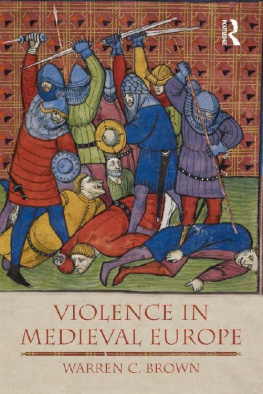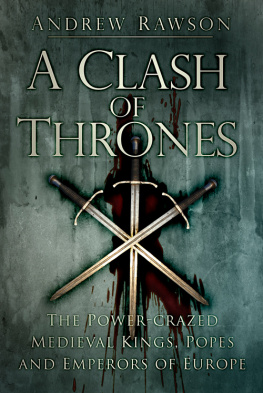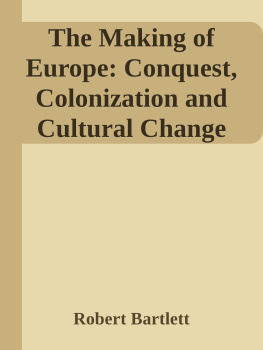Robert F. Berkhofer III - The Experience of Power in Medieval Europe, 950–1350
Here you can read online Robert F. Berkhofer III - The Experience of Power in Medieval Europe, 950–1350 full text of the book (entire story) in english for free. Download pdf and epub, get meaning, cover and reviews about this ebook. year: 2017, publisher: Taylor and Francis, genre: Romance novel. Description of the work, (preface) as well as reviews are available. Best literature library LitArk.com created for fans of good reading and offers a wide selection of genres:
Romance novel
Science fiction
Adventure
Detective
Science
History
Home and family
Prose
Art
Politics
Computer
Non-fiction
Religion
Business
Children
Humor
Choose a favorite category and find really read worthwhile books. Enjoy immersion in the world of imagination, feel the emotions of the characters or learn something new for yourself, make an fascinating discovery.

- Book:The Experience of Power in Medieval Europe, 950–1350
- Author:
- Publisher:Taylor and Francis
- Genre:
- Year:2017
- Rating:3 / 5
- Favourites:Add to favourites
- Your mark:
- 60
- 1
- 2
- 3
- 4
- 5
The Experience of Power in Medieval Europe, 950–1350: summary, description and annotation
We offer to read an annotation, description, summary or preface (depends on what the author of the book "The Experience of Power in Medieval Europe, 950–1350" wrote himself). If you haven't found the necessary information about the book — write in the comments, we will try to find it.
The Experience of Power in Medieval Europe, 950–1350 — read online for free the complete book (whole text) full work
Below is the text of the book, divided by pages. System saving the place of the last page read, allows you to conveniently read the book "The Experience of Power in Medieval Europe, 950–1350" online for free, without having to search again every time where you left off. Put a bookmark, and you can go to the page where you finished reading at any time.
Font size:
Interval:
Bookmark:

MEDIEVAL EUROPE, 9501350
Medieval Europe, 9501350
ROBERT F. BERKHOFER III
Western Michigan University, USA
ALAN COOPER
Colgate University, USA
ADAM J. KOSTO
Columbia University, USA

2 Park Square, Milton Park, Abingdon, Oxon OX14 4RN
711 Third Avenue, New York, NY 10017, USA
Product or corporate names may be trademarks or registered trademarks, and are used only for identification and explanation without intent to infringe.
1. Power (Social sciences) Europe History To 1500
2. Europe Politics and government 4761492 3. Europe
Social conditions To 1492 4. Europe History 4761492
I. Berkhofer, Robert F. II. Cooper, Alan III. Kosto, Adam J.
320.940902
Berkhofer, Robert F, 1966
The experience of power in medieval Europe, 9501350 / Robert F Berkhofer III, Alan Cooper, and Adam J. Kosto.
p. cm.
Includes index.
ISBN0-7546-5106-1 (alk. paper)
1. Power (Social sciences)EuropeHistoryTo 1500.2. Middle agesHistory. I. Cooper, Alan. II. Kosto, Adam J. III. Title
306.0940902dc22
Alan Cooper
Adam J. Kosto
Font size:
Interval:
Bookmark:
Similar books «The Experience of Power in Medieval Europe, 950–1350»
Look at similar books to The Experience of Power in Medieval Europe, 950–1350. We have selected literature similar in name and meaning in the hope of providing readers with more options to find new, interesting, not yet read works.
Discussion, reviews of the book The Experience of Power in Medieval Europe, 950–1350 and just readers' own opinions. Leave your comments, write what you think about the work, its meaning or the main characters. Specify what exactly you liked and what you didn't like, and why you think so.

